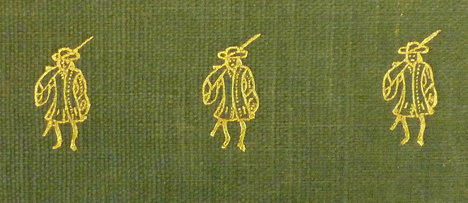The Russian part of the Internet conceals many of the biggest pirated text collections ever created by humanity. A few closely interconnected websites commit copyright infringement but offer free and unlimited access to millions of books, literary works and scholarly publications in DRM-free pdf or epub formats. They were assembled by devoted scholars and other individuals who have been digitizing and sharing their private book collections ever since the appearance of PCs and the Internet in the 1990s. Digital collections that accumulated on private hard drives and departmental and institutional servers were collected and compiled by pirate librarians in the late 2000s, and, as a result, these illegal text collections that operate in the shadows have become the largest and most accessible digital text collections mankind has ever produced.
From Russia, with love
It is by no means an accident that most of these pirate libraries are on Russian servers, and that many of the leading pirate librarians seem to be of Russian origin. It would be a mistake to attribute this to the fact that copyright protection was slow to develop in post-Soviet Russia; even after it was brought in line with international standards, copyright enforcement remains weak and selective. Although these factors certainly explain why pirate libraries currently enjoy relative safety in Russia, they say little about the environment that fostered their creation and enabled their development. To understand this we must take into account the historical and social factors that created the ideal environment for pirate librarianship.

Cover detail, Philip Lindsay’s(Fanfrolico Press, 1930). Photo: Burns Library, Boston College. Source:Flickr
The first of these factors is the communist approach to access to knowledge. The importance of providing access to knowledge with as few limitations as possible was already enshrined in the first Soviet authors’ rights law. The high moral claim was, of course, quickly tainted by the practice of harsh political censorship and the continuous economic hardships that restrained access to works even when they were not censored. However, these two limitations taught people living in these societies how to bypass and overcome the political and economic hurdles that limited their access to books. Both participation in informal samizdat distribution networks and the exchange of books on grey/black markets belonged to the everyday experience of the eastern European intelligentsia.
The knowledge of how to organize the dissemination of knowledge with severely limited resources under hostile conditions came in handy after the transition, when hidden practices and suppressed energy could finally develop in full force. The enthusiasm for catching up with the rest of the world and mending the wounds of censorship took the form of private, bottom-up librarianship and the creation of widely and freely accessible text repositories. These efforts were quick to find their ideal medium in the computers and the Internet that appeared around the same time in Russia and other central and eastern European countries. The late 1990s saw the proliferation of initially offline, and then later online, private text collections, which contained the digitized versions of every text that was hard to come by in the Soviet era: science fiction, western literature, banned books and scholarly works, whether these be Russian or western (Bodó, 2015).
The same enthusiasm that prompted countless individuals to digitize and share texts also affected Russian authors and rights holders, whose tacit or explicit approval was also required for the bottom-up library culture to flourish. For most of the 2000s, online libraries were not considered a threat to the publishing business or the well-being of authors. This rights-holder approval created a legal and normative environment very different from those of western Europe and North America, where the aggressive protection of copyright and a highly litigious legal environment quickly put an end to the unauthorized digital libraries that sprung up around the same time.
Underground rivers of knowledge
Today’s pirate libraries were born to address political, economic and social issues specific to Soviet and post-Soviet times, but they quickly became vital beyond their original context. The lack of access to knowledge in the developing world has been an increasingly important topic in academic discussions as well as in international trade agreement negotiations. The claim that the West uses its control over intellectual property to deliberately maintain global inequality may not have been proven beyond doubt, but it is nevertheless a fact that developing countries often lack access to copyrighted works of science and literature priced at a level that makes them unaffordable in local markets. Infrastructure also plays a role here: public and research libraries are also struggling to keep up with demand mostly due to inadequate funding. Official and legal efforts to provide better access, such as the open access movement, Creative Commons, and the like are respectable but slow-moving initiatives, and their practical effectiveness is currently rather limited. Pirate libraries, on the other hand, take a radical approach, and are not afraid of taking illegal shortcuts in order to make classic, scholarly and literary works universally accessible.
The biggest beneficiaries of this radical open access movement are certainly developing countries, which are among the biggest users of pirate libraries. In terms of volume, populous, relatively poor but quickly developing countries are the most frequent visitors to pirate libraries, but they are not the biggest per capita users; in this latter respect, the central and eastern European countries feature most heavily.
These countries reconnected with the West after 1990 and subsequently joined the European Union. They became part of the single European market, including the job market. Post-communist CEE countries had to modernize their economies, their research and their higher education systems, but often continue to lack adequate financial and infrastructural resources to significantly close the gap with highly developed western European countries. The Bologna process created structural compatibility between eastern and western European systems of higher education, but without the radical modernization of library stacks and curricula, educational institutions are unable to offer competitive degrees for European – and global – job markets. For these countries, pirated libraries offer an interim solution that they are apparently eager to use. For pirate libraries offer the most recent academic mainstream publications produced and used in the most affluent western universities; thus, educational institutions, scholars, teachers and students in the CEE countries can use the same books and textbooks as their more fortunate colleagues. Pirate libraries are a crucial resource in the modernization of CEE countries.
Thirst for knowledge
Countries do not only differ in terms of intensity of use; there are also significant differences in which subject area sections of the library they favour. The post-Soviet republics tend to favour “unclassifiable” texts, to which mostly Russian language books (without ISBN numbers) belong. The Russian origin of the pirate libraries is apparent in both the high number of unclassifiable documents and the countries that use those sections the most. Post-Soviet countries still rely heavily on the knowledge amassed in Russian, by Russian individuals and institutions.
Multiple countries show a preference for natural sciences, mathematics, technology and computer science. Among these we find several Middle Eastern countries (such as Jordan, Algeria and Iran), those with cultural and scholarly discourses that are relatively autonomous from discourses based on texts published by major western publishers and found in the pirate catalogues. What may at first look like a cultural division could in fact reflect a difference in the focus of higher education systems in these countries. OECD country-level data on the number of university graduates suggests that in at least some of these countries, the share of social science graduates is only a fraction of social science graduates in European countries, while the share of natural science graduates is nearly identical. In this Middle Eastern group of countries, science and engineering seem to be favoured over the social sciences, both in the educational system and as a preferred career path for students.
Other countries – and this is where many of the CEE countries belong – display a more balanced knowledge diet, with preferences spread more equally across the libraries’ various subject areas. There are, however, notable differences among the CEE countries. Although they are high per capita downloaders, users in these countries seem to be less interested in the natural sciences and technology disciplines than users in many western European countries. Their focus is on the social sciences and humanities. At this point, one can only guess at the exact reason for this bias and whether it has to do with the structure of the educational system, the underfunding of these disciplines, or with a more general societal interest in sociology, economics, political science and other related disciplines. In any case, the relatively low share of disciplines that serve as a foundation for the new, technology-based innovation economy is telling.
Anyone have a better idea?
Although legal access conditions have improved considerably in recent years, the overwhelming majority (68 per cent) of the pirate library catalogue is still inaccessible in e-book format. The costs of institutional subscriptions to publisher-provided electronic book repositories are often prohibitive, even for the most affluent universities. Print books are increasingly priced and sold to libraries rather than individuals. These constraints sharply separate the haves from the have-nots, and most CEE countries are still among the have-nots when it comes to access to the most recent and relevant scholarly publications. Pirate libraries fill the current gap between supply and demand. They are based on the contributions of individuals and take the non-commercial sharing ethos seriously. The catalogues of these libraries are already huge, and they are growing at an impressive speed. Their illegality, however, puts scholars, researchers, students, and interested readers in a difficult position. To pirate or not to pirate may be a straightforward decision if the work in question is Lady Gaga’s latest hit, and the legal alternative to piracy is YouTube. The dilemma becomes much more difficult if one needs access to the latest advances in cancer research and there is no physical or electronic copy in sight.







